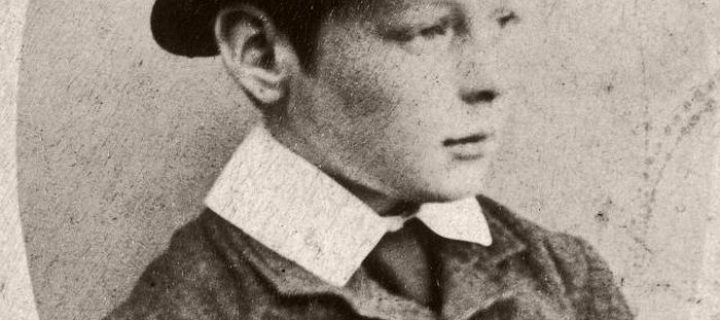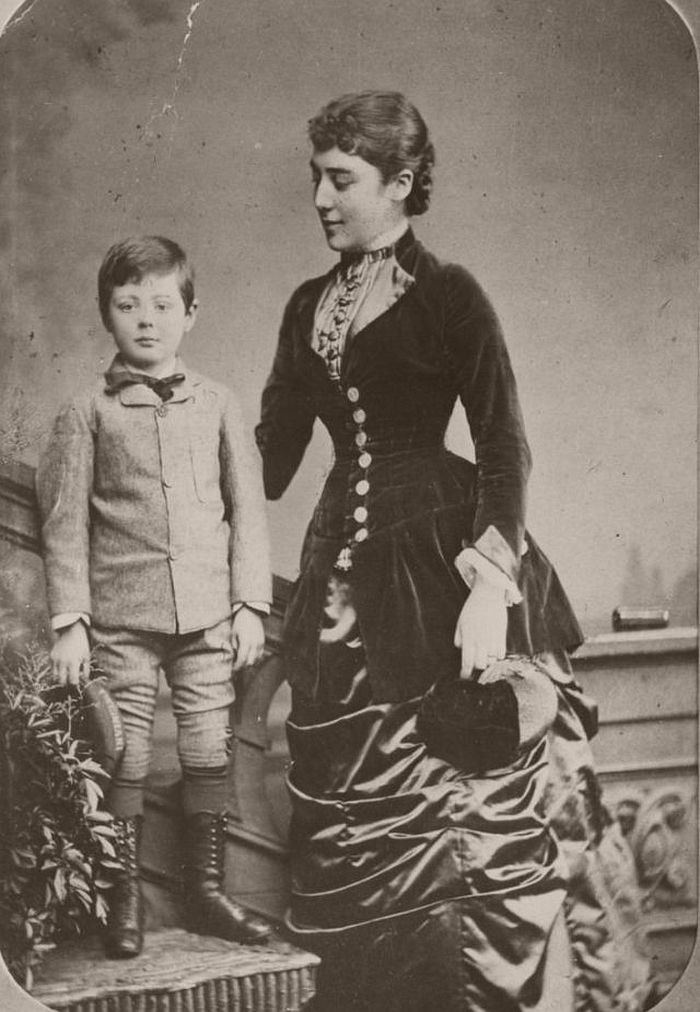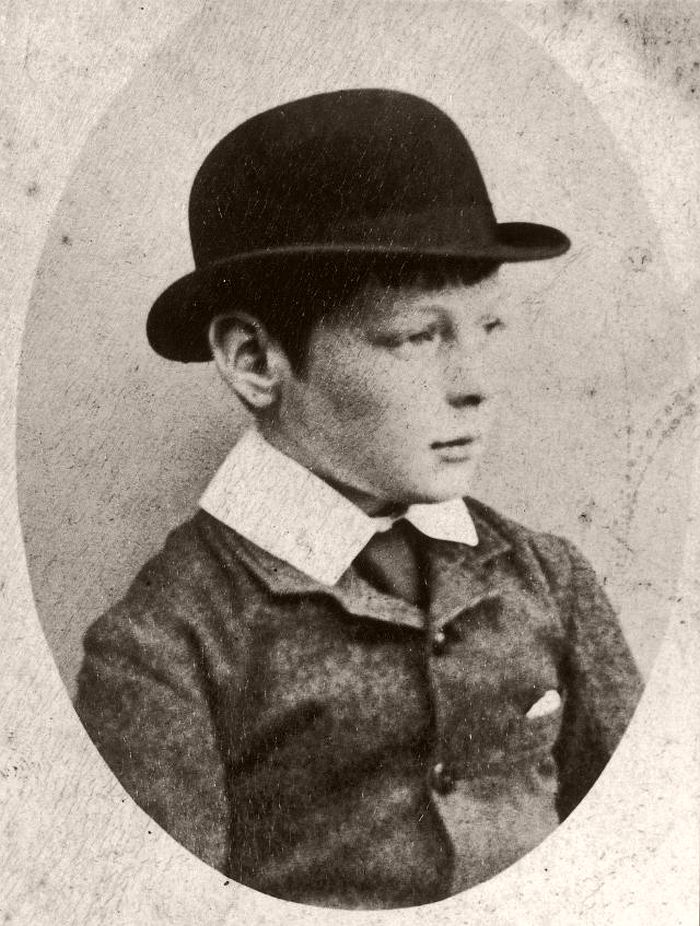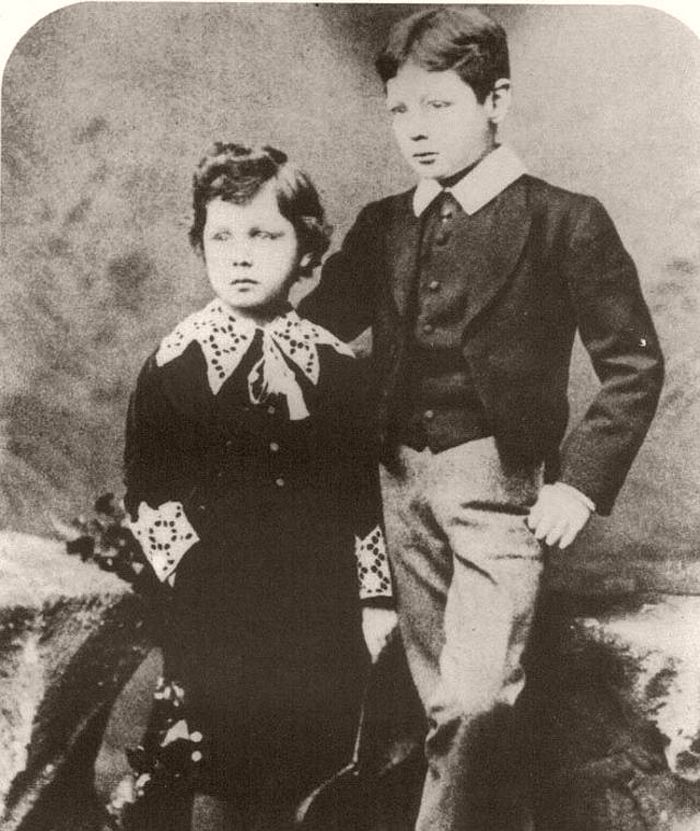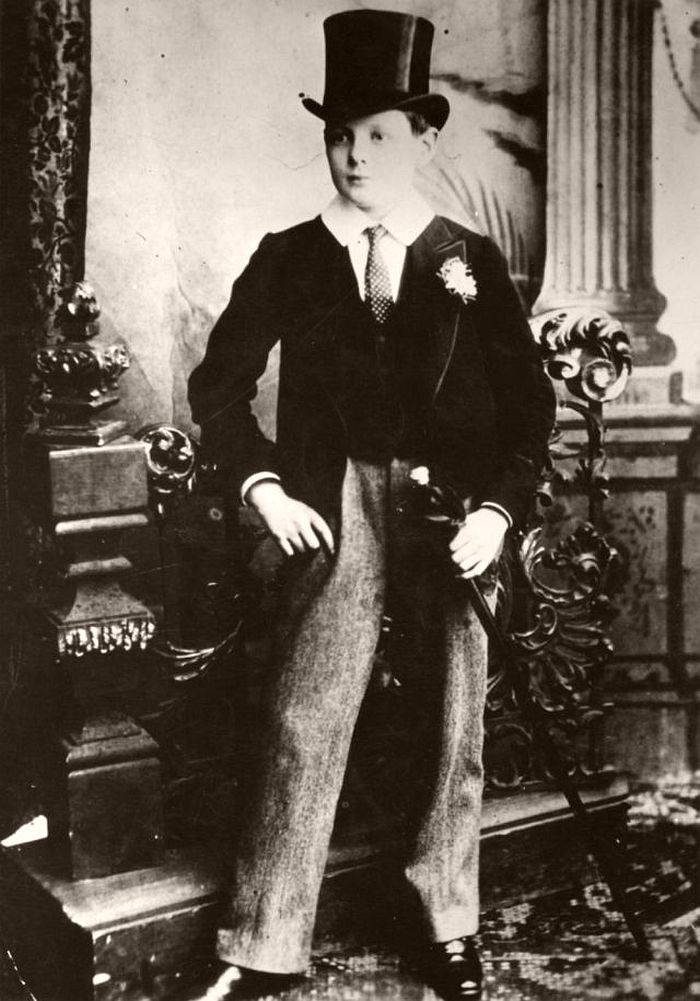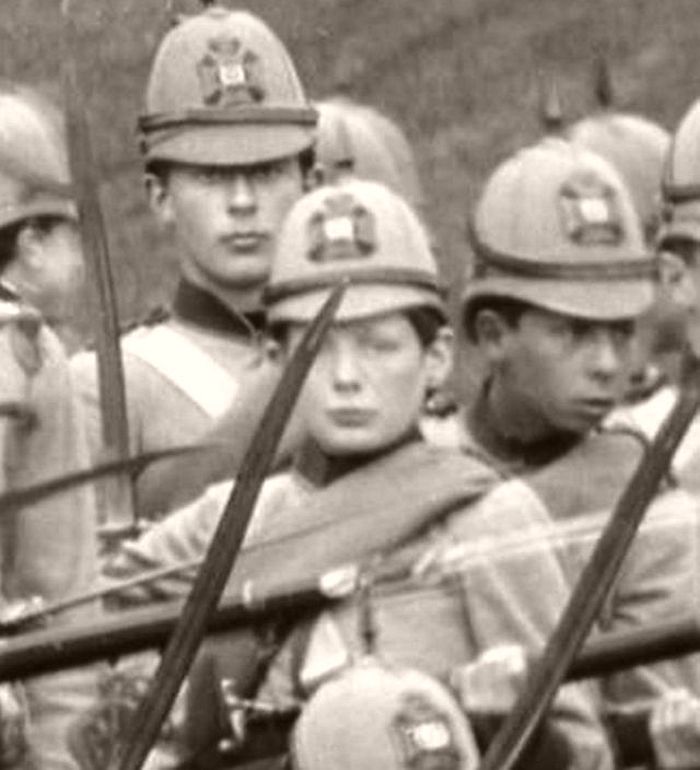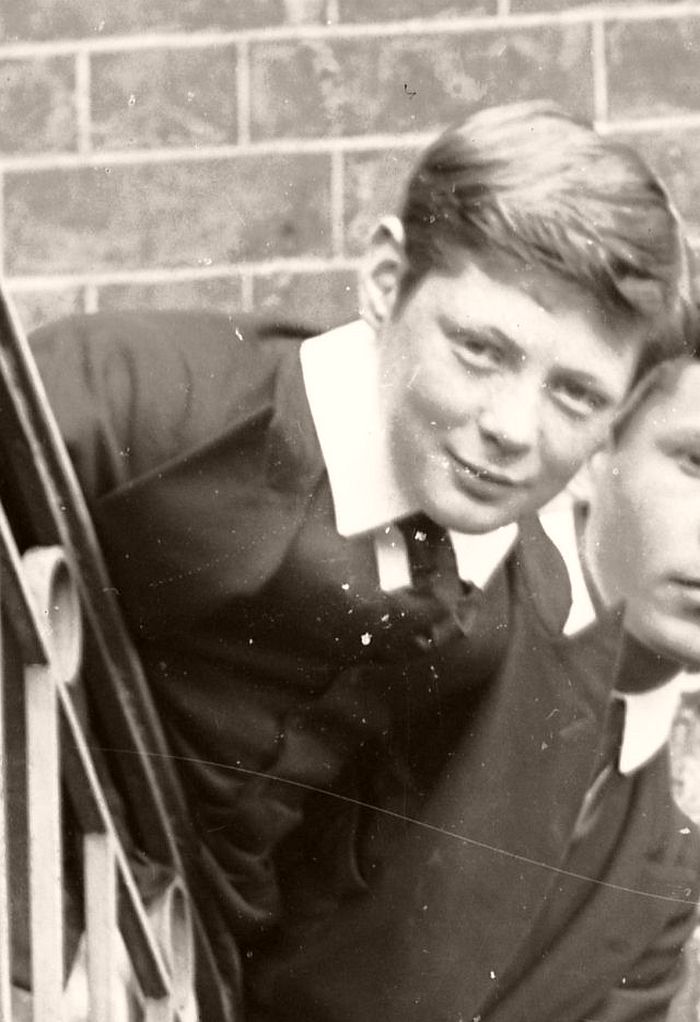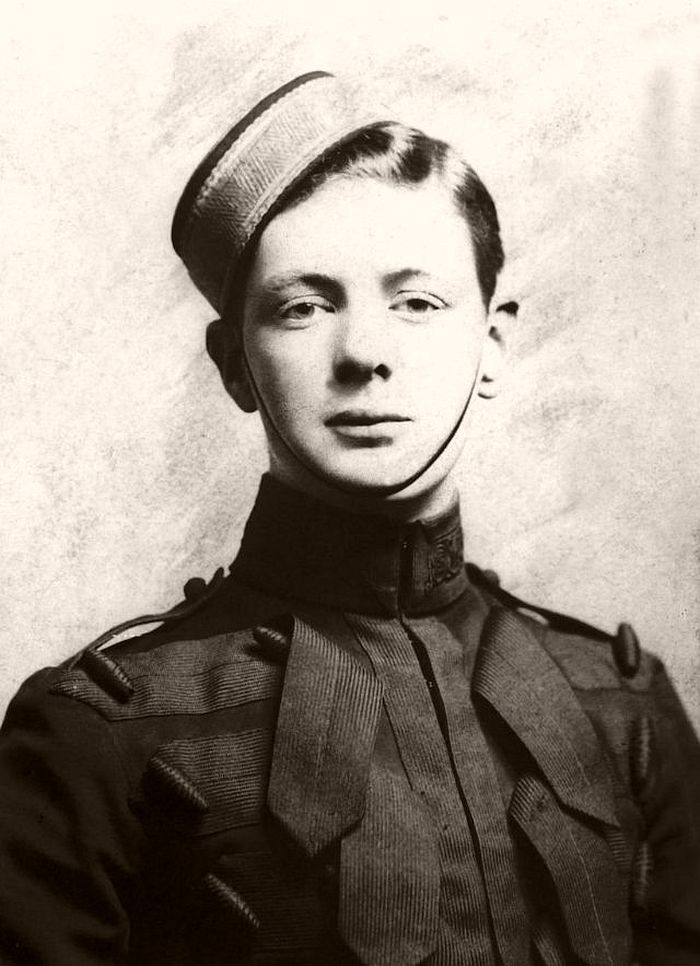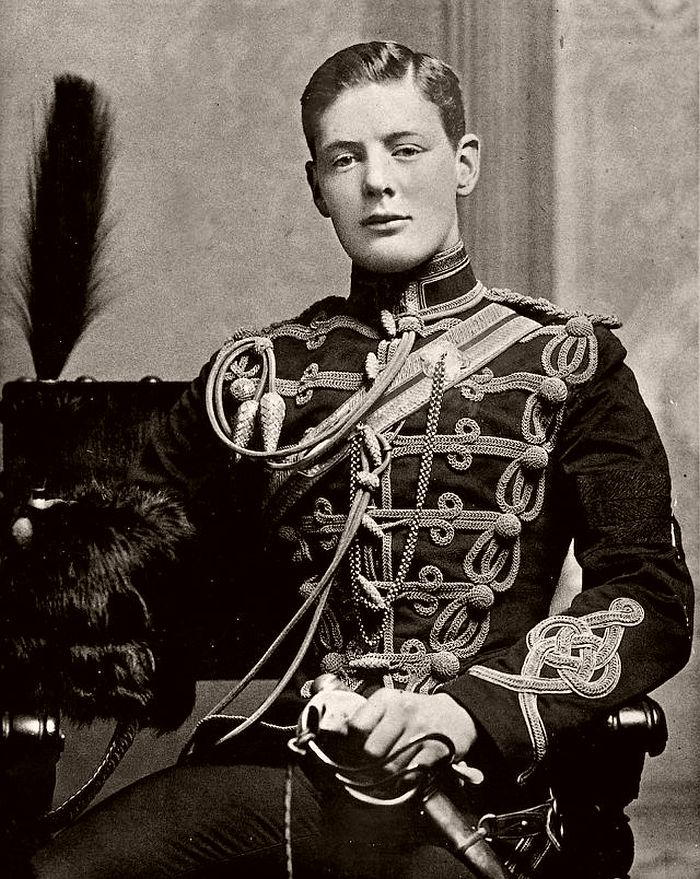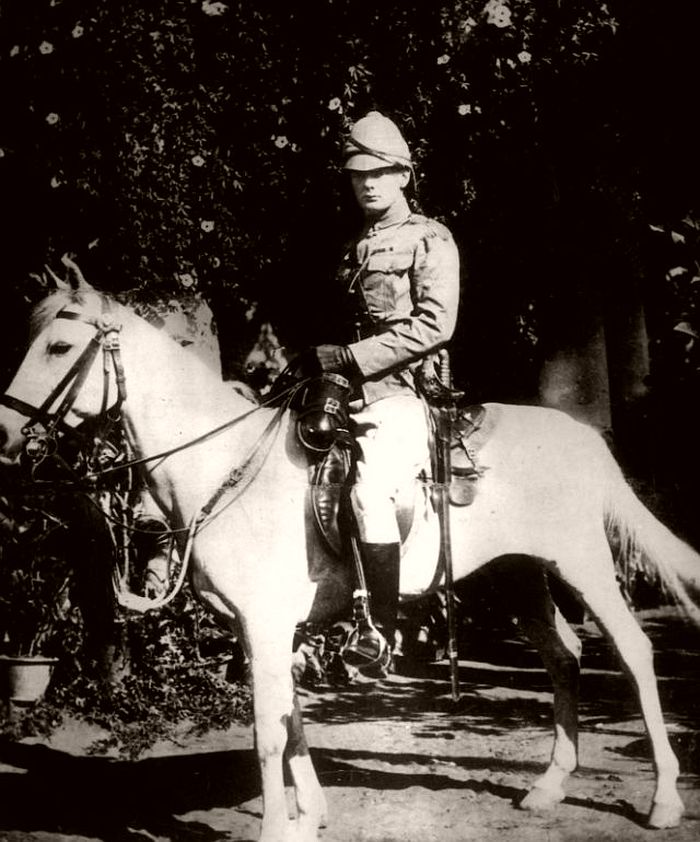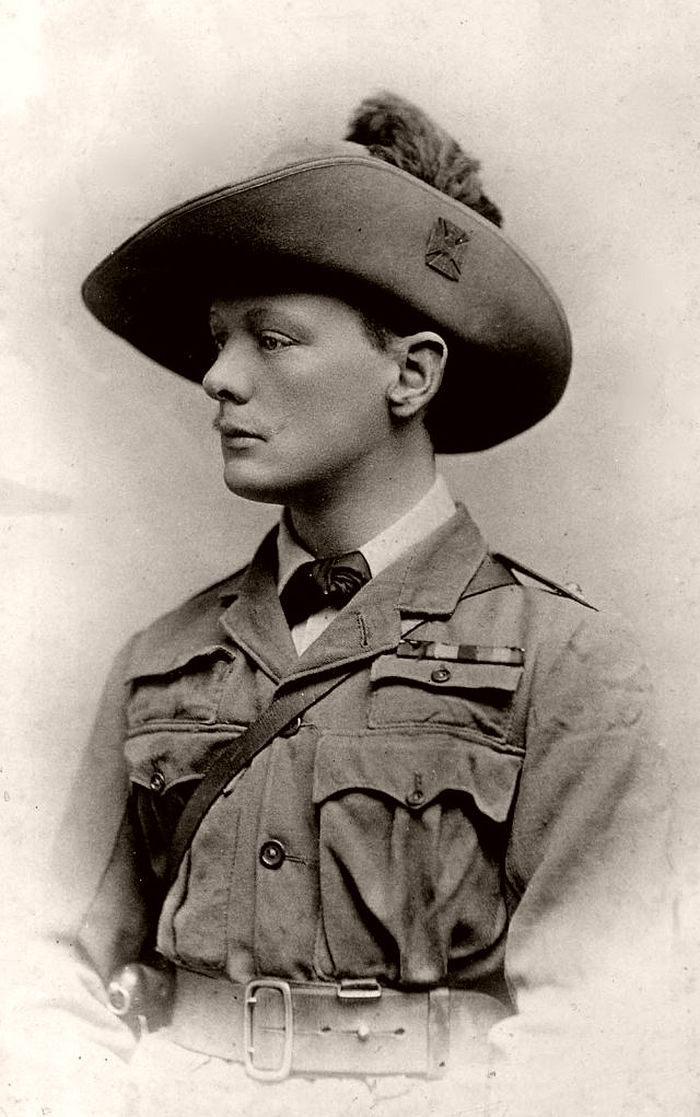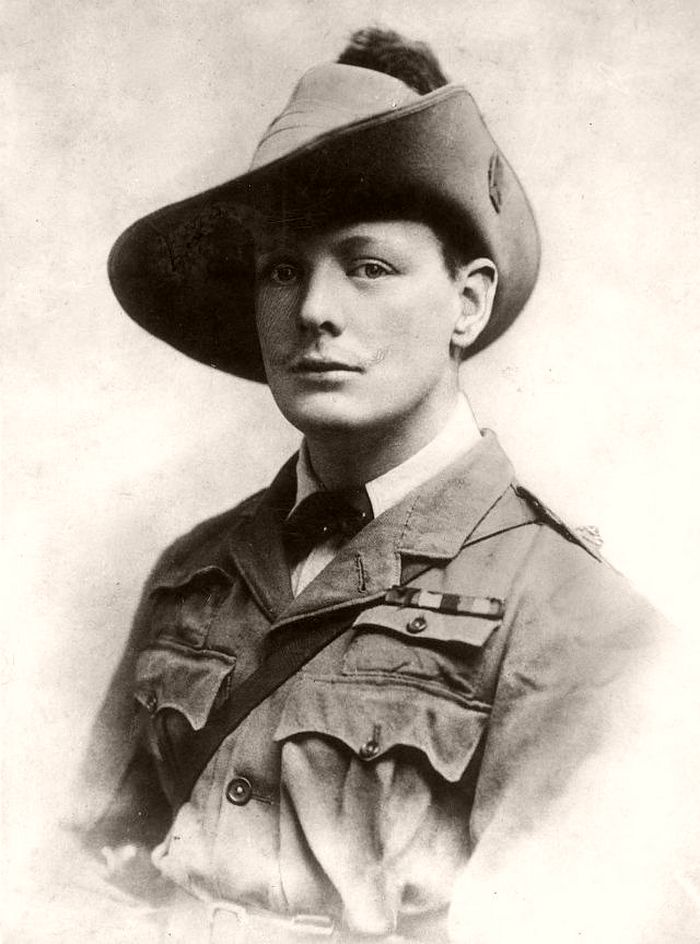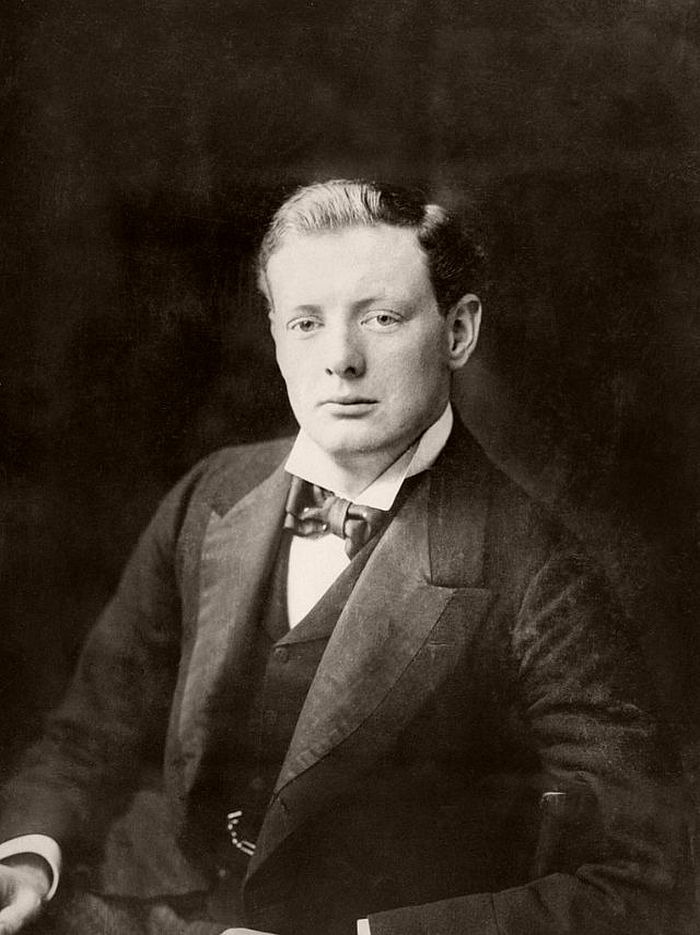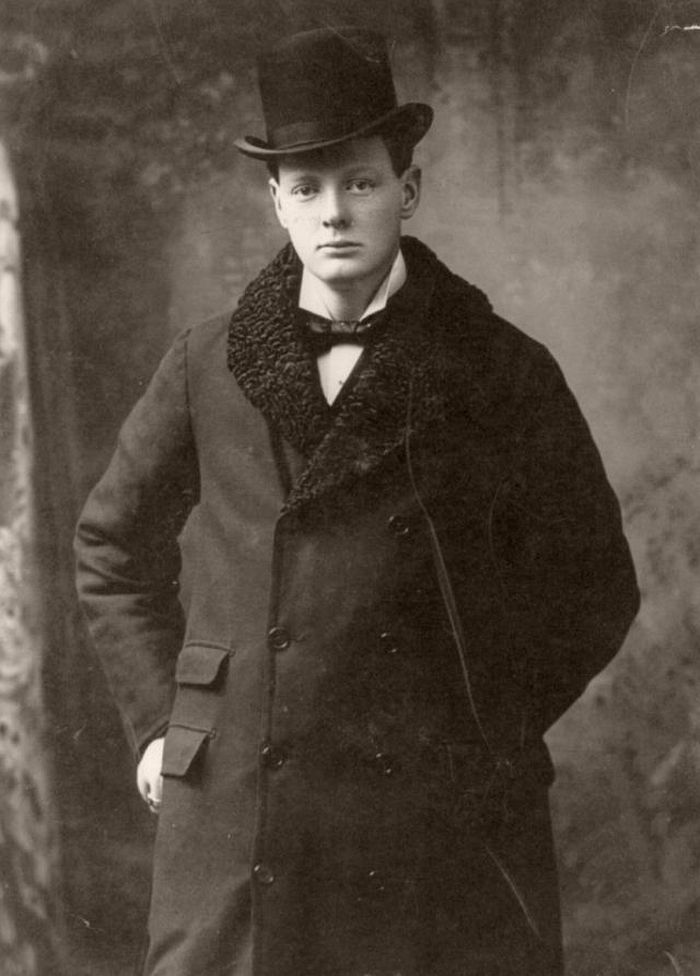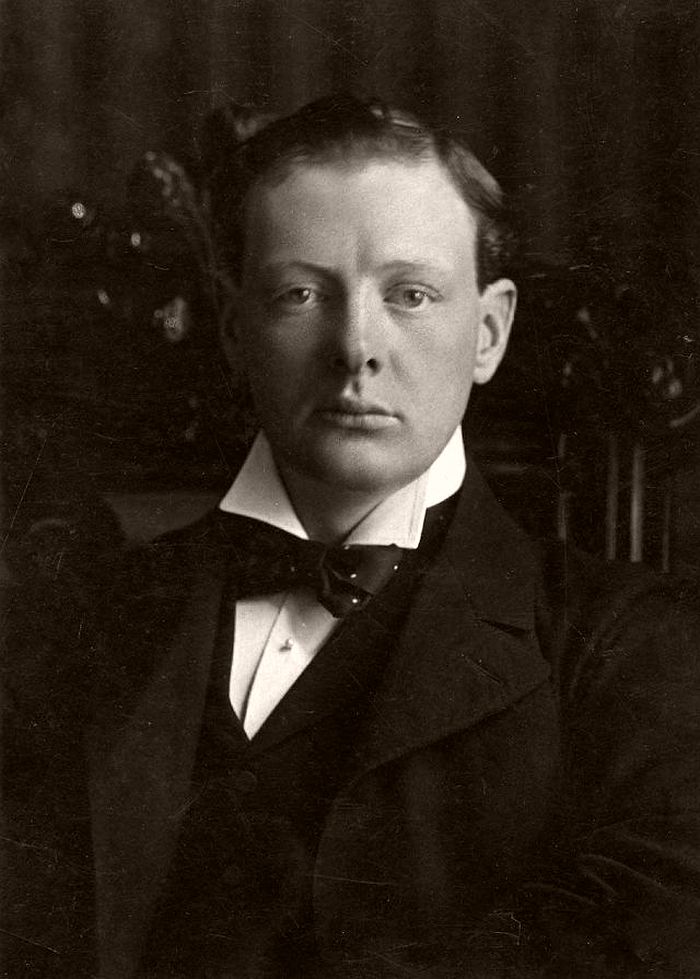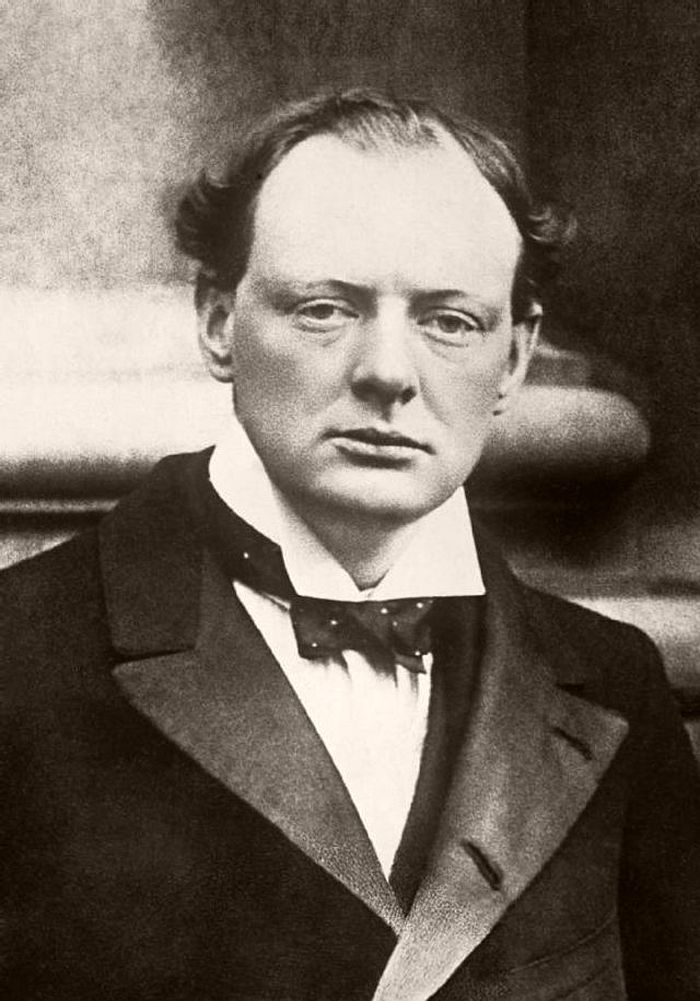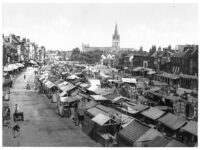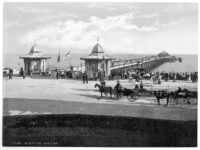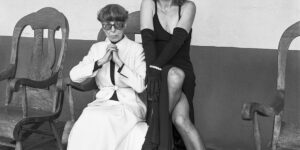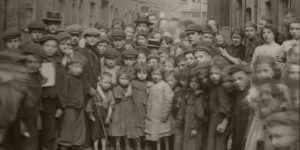Churchill was born at the family’s ancestral home, Blenheim Palace in Oxfordshire, on 30 November 1874, at which time the United Kingdom was the dominant world power. Direct descendants of the Dukes of Marlborough, his family were among the highest levels of the British aristocracy, and thus he was born into the country’s governing elite. His paternal grandfather, John Spencer-Churchill, 7th Duke of Marlborough, had been a Member of Parliament (MP) for ten years, a member of the Conservative Party who served in the government of Prime Minister Benjamin Disraeli. His own father, Lord Randolph Churchill, had been elected Conservative MP for Woodstock in 1873. His mother, Jennie Churchill (née Jerome), was from an American family whose substantial wealth derived from finance. The couple had met in August 1873, and were engaged three days later, marrying at the British Embassy in Paris in April 1874. The couple lived beyond their income and were frequently in debt; according to the biographer Sebastian Haffner, the family were “rich by normal standards but poor by those of the rich”.
In 1876 John Spencer-Churchill was appointed Viceroy of Ireland, with Randolph as his private secretary, resulting in the Churchill family’s relocation to Dublin, when the entirety of Ireland was part of the United Kingdom. It was here that Jennie’s second son, Jack, was born in 1880; there has been speculation that Randolph was not his biological father. Throughout much of the 1880s Randolph and Jennie were effectively estranged, and during this time she had many suitors. Churchill had virtually no relationship with his father;referring to his mother, Churchill later stated that “I loved her dearly—but at a distance.” His relationship with Jack was warm. In Dublin, the brothers were cared for primarily by their nanny, Elizabeth Everest. Churchill nicknamed her “Woomany”, and later wrote that “She had been my dearest and most intimate friend during the whole of the twenty years I had lived.”
Aged seven, he began boarding at St. George’s School in Ascot, Berkshire; he hated it, did poorly academically, and regularly misbehaved. Visits home were to Connaught Place in London, where his parents had settled, while they also took him on his first foreign holiday, to Gastein in Austria-Hungary. As a result of poor health, in September 1884 he moved to Brunswick School in Hove; there, his academic performance improved but he continued to misbehave. He narrowly passed the entrance exam which allowed him to begin studies at the elite Harrow School in April 1888. There, his academics remained high—he excelled particularly in history—but teachers complained that he was unpunctual and careless. He wrote poetry and letters which were published in the school magazine, Harrovian, and won a fencing competition. His father insisted that he be prepared for a career in the military, and so Churchill’s last three years at Harrow were spent in the army form. He performed poorly in most of his exams.
On a holiday to Bournemouth in January 1893, Churchill fell and was knocked unconscious for three days. In March he took a job at a cram school in Lexham Gardens, South Kensington, before holidaying in Switzerland and Italy that summer. After two unsuccessful attempts to gain admittance to the Royal Military Academy, Sandhurst, he succeeded on his third attempt. There, he was accepted as a cadet in the cavalry, starting his education in September 1893. In August 1894 he and his brother holidayed in Belgium, and he spent free time in London, joining protests at the closing of the Empire Theatre, which he had frequented. His Sandhurst education lasted for 15 months; he graduated in December 1894. Shortly after Churchill finished at Sandhurst, in January 1895, his father died; this led Churchill to adopt the belief that members of his family inevitably died young.
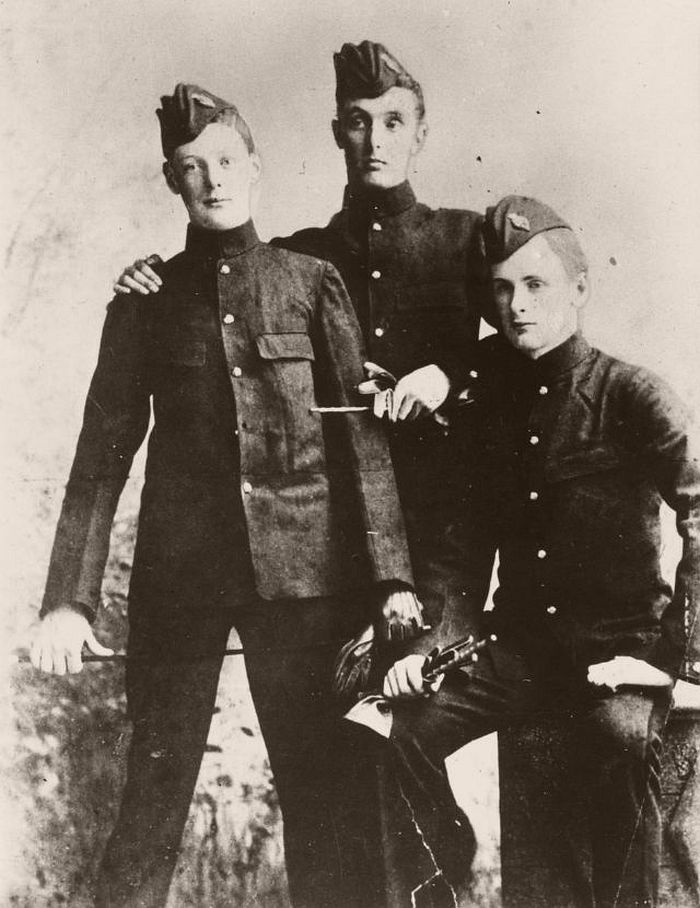
Churchill (left) with friends at Sandhurst just before leaving to be commissioned in the 4th Queen’s Own Hussars, 1894.
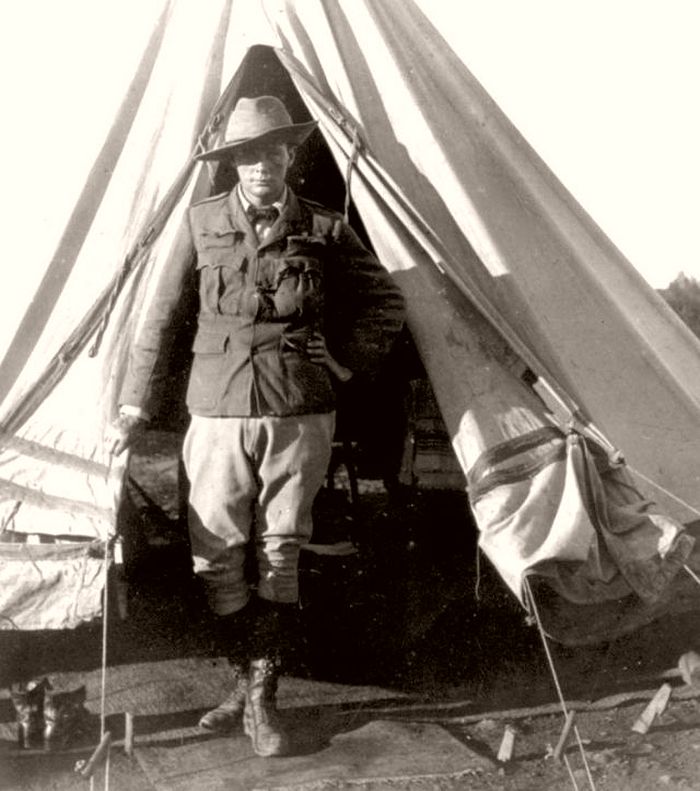
Churchill standing at the opening of his tent as a war correspondent during the Second Boer War, in Bloemfontein, South Africa, 1900.

